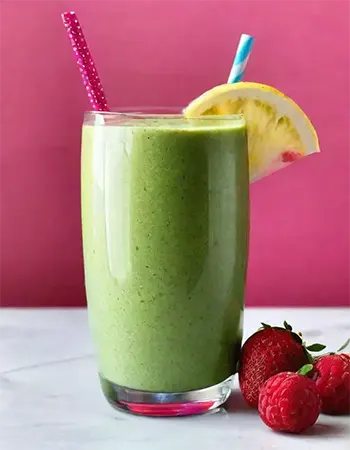Microgreens for Athletes: Optimizing Performance with Nutrient-Dense Greens
The world of competitive athletics is a relentless pursuit of excellence. Athletes dedicate themselves to rigorous training regimens, meticulously strategize their competition approaches, and constantly seek ways to optimize their performance and gain that crucial competitive edge. Every advantage, no matter how seemingly small, can make a significant difference on the field, track, or court.

While traditional training methods like strength and conditioning, and dietary strategies like macronutrient planning remain the cornerstones of athletic success, recent research has opened doors to exciting new possibilities. One such avenue of exploration lies in the realm of microgreens, tiny powerhouses with the potential to significantly impact an athlete's journey to peak performance.
What are Microgreens?
Microgreens are the immature seedlings of various vegetables, herbs, and even some edible flowers. Harvested within 1-2 weeks after germination, they offer a concentrated burst of nutrients, often exceeding the levels found in their mature counterparts.
Fueling Peak Performance:
Microgreens are like tiny nutritional powerhouses, packed with essential vitamins, minerals, and bioactive compounds that can directly benefit athletes:
- Vitamins: Vitamins A, C, K, and E play critical roles in:
- Boosting the immune system: This helps athletes fight off illnesses that can disrupt training and competition schedules.
- Maintaining sharp vision: Crucial for activities requiring precise eye-hand coordination and reaction time.
- Supporting cellular function: Essential for optimal energy production and muscle function during intense training sessions.
- Minerals: Iron, calcium, magnesium, and phosphorus are vital for:
- Strong bones and joints: This helps prevent injuries and supports recovery from strenuous workouts.
- Efficient muscle function: Minerals like magnesium contribute to muscle contraction and relaxation, impacting performance and reducing the risk of cramps.
- Sustained energy production: Minerals like iron play a key role in carrying oxygen to muscles, which fuels performance and minimizes fatigue.
- Antioxidants: These compounds combat oxidative stress and inflammation, which can hinder athletic performance and recovery in several ways:
- Reduced muscle soreness and faster recovery: By mitigating inflammation, antioxidants can help athletes bounce back quicker from demanding training sessions.
- Improved endurance: By combating oxidative stress, antioxidants can potentially help athletes maintain higher energy levels and delay fatigue during extended periods of exertion.
By incorporating microgreens into their diet, athletes can potentially harness the power of these essential nutrients to optimize their performance and recovery journey.

Amplifying Athletic Performance with Microgreens:
Athletes pushing their limits constantly seek ways to optimize their performance and recovery. Incorporating microgreens into their diet presents several potential benefits:
-
Bridging the Nutrient Gap: Athletes with demanding training schedules often face challenges in meeting their daily micronutrient needs. Microgreens, densely packed with essential vitamins and minerals, offer a convenient and concentrated way to address these potential gaps. Vitamins A, C, and E support a robust immune system, which is crucial for fighting off illnesses that can derail training and competition plans. Minerals like iron and magnesium contribute to optimal oxygen delivery and muscle function, directly impacting athletic performance.
-
Accelerating Recovery: Intense training inevitably leads to muscle breakdown and inflammation. Microgreens, rich in antioxidants and anti-inflammatory compounds, can play a significant role in reducing muscle soreness and promoting faster recovery. This translates to increased training consistency and a quicker return to peak performance. Additionally, the presence of chlorophyll, found abundantly in microgreens, further aids in the recovery process by supporting cellular repair and detoxification.
-
Fortifying the Body's Defense: Athletes are particularly susceptible to illnesses due to the physical stress they endure. The high vitamin and mineral content of microgreens, specifically vitamins C and D, helps strengthen the immune system, making athletes less vulnerable to infections. This translates to fewer training disruptions and missed competitions due to illness.
-
Sustaining Energy Levels: Maintaining optimal energy levels is critical for athletes to train effectively and perform at their best. Microgreens, containing essential B vitamins and minerals like iron, play a vital role in supporting energy production and metabolism. These nutrients contribute to efficient fuel utilization and reduced fatigue, allowing athletes to train harder and longer.
By incorporating microgreens into their diet, athletes can potentially harness the power of these concentrated nutrients to enhance performance, optimize recovery, and build resilience against illness, ultimately supporting their journey toward athletic excellence.
Creative Culinary Integration: Microgreens in the Athlete's Kitchen
Incorporating microgreens into an athlete's diet doesn't have to be bland or monotonous. Their versatility allows for creative culinary integration, adding a nutritional punch and a burst of flavor to various dishes:

- Salad Powerhouse: Salads are a staple in many athletes' diets, and microgreens can easily elevate them from good to great. Explore different varieties like spicy radish or peppery arugula microgreens to add a flavor dimension and enhance the nutritional profile of your salad.
- Smoothie Boost: Microgreens can be easily blended into smoothies for a convenient and refreshing way to consume them. Spinach or kale microgreens pair well with fruits like berries and bananas, while sunflower or pea shoot microgreens add a subtle nuttiness to green smoothies.
- Sandwich Surprise: Elevate your everyday sandwich with a layer of microgreens. Arugula or pea shoot microgreens add a peppery kick to turkey sandwiches, while sunflower or beet microgreens complement the richness of grilled chicken.
- Soup and Stew Savior: Don't underestimate the power of microgreens as a garnish. Sprinkling a handful of pea shoot or radish microgreens on top of a steaming bowl of soup or stew adds a vibrant pop of color and a nutritional boost just before consumption.
- Omelette Enhancer: For a protein-packed breakfast, consider adding microgreens to your omelet. Broccoli or kale microgreens offer a nutritious and delicious addition, while chives or cilantro microgreens add a subtle herbal flavor.
- Pizza Perfection: Take your homemade pizza to the next level with a sprinkle of microgreens after it comes out of the oven. Arugula or radish microgreens offer a peppery contrast to the rich flavors of cheese and tomato sauce, while beet microgreens add a subtle sweetness.
By exploring these creative ways to incorporate microgreens, athletes can enjoy the nutritional benefits and flavorful additions they bring to various meals, making it easier to integrate them into their daily routines. Remember, a little goes a long way, so start with a small amount and adjust to your taste preferences.
Conclusion:
While microgreens are not a magic bullet for athletic success, they offer a promising strategy to optimize an athlete's diet and potentially enhance performance and recovery. With their concentrated nutrient content and potential health benefits, microgreens are worth considering for athletes seeking a competitive edge.
Additional Considerations:
- It is important to source microgreens from reputable growers like JJ's Farm, who employ safe and hygienic practices.
- Athletes should consult with a registered dietitian to ensure microgreens are incorporated into a balanced and personalized diet plan.
- As with any new food, it is advisable to introduce microgreens gradually to assess individual tolerance.
Further reading - Rideau Lakes - Power microgreens! | Microgreens for kids? | More than just cat grass | Partnering with chefs

